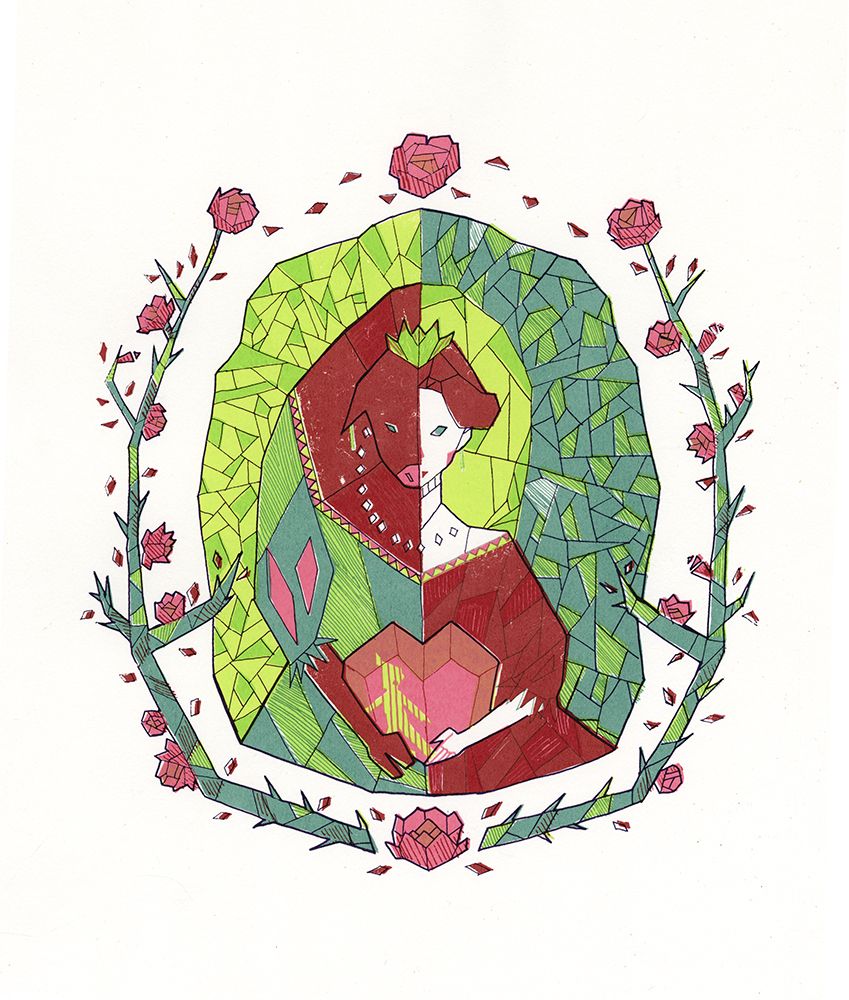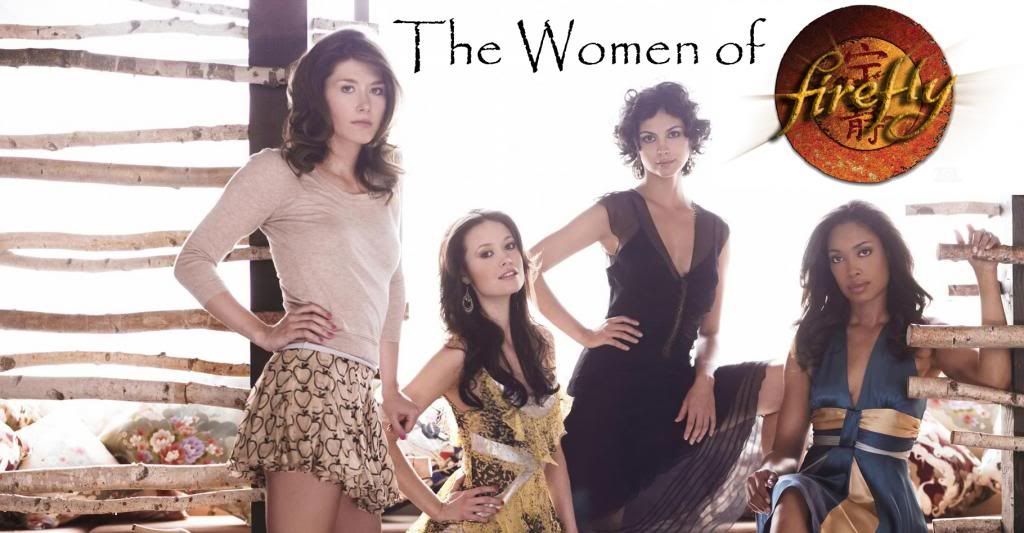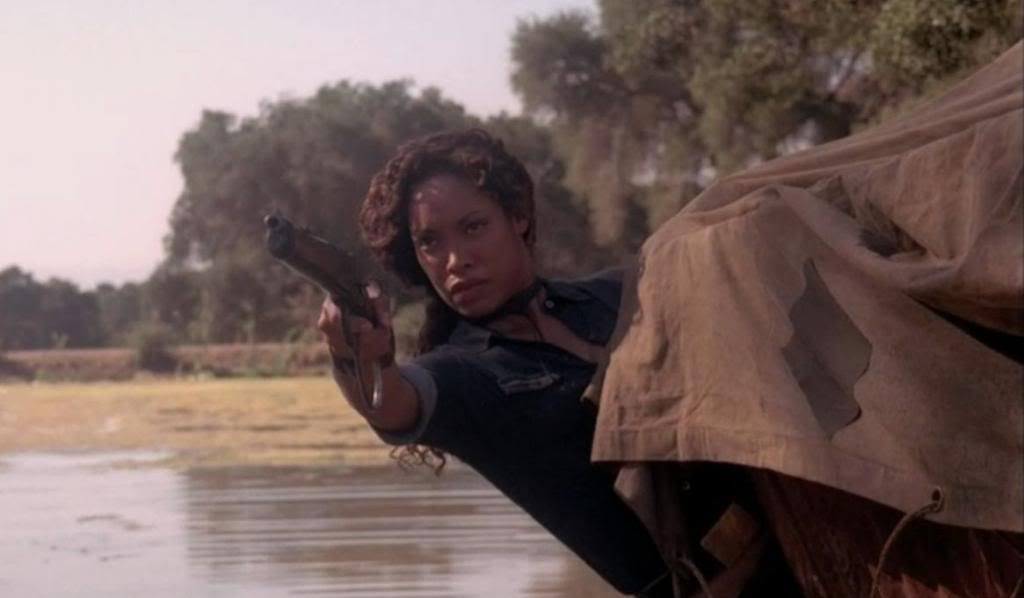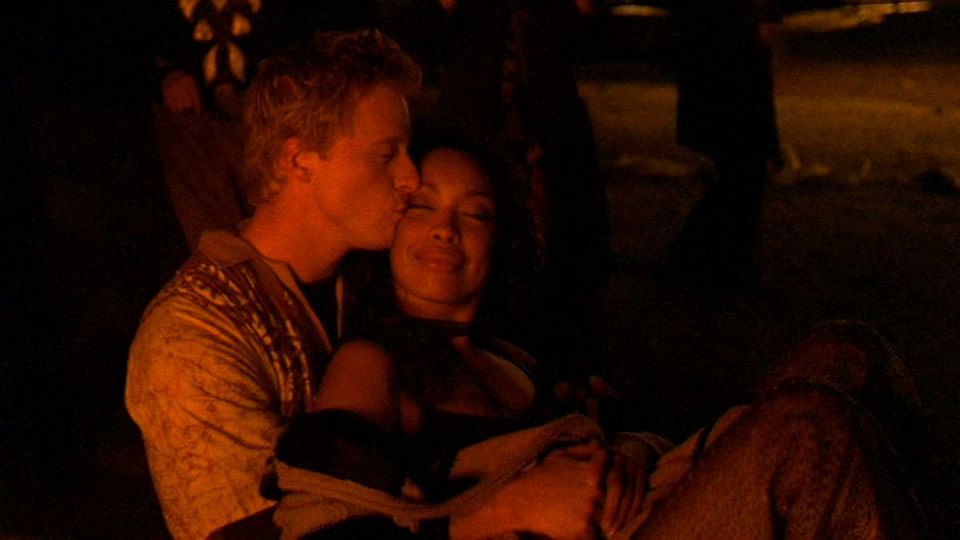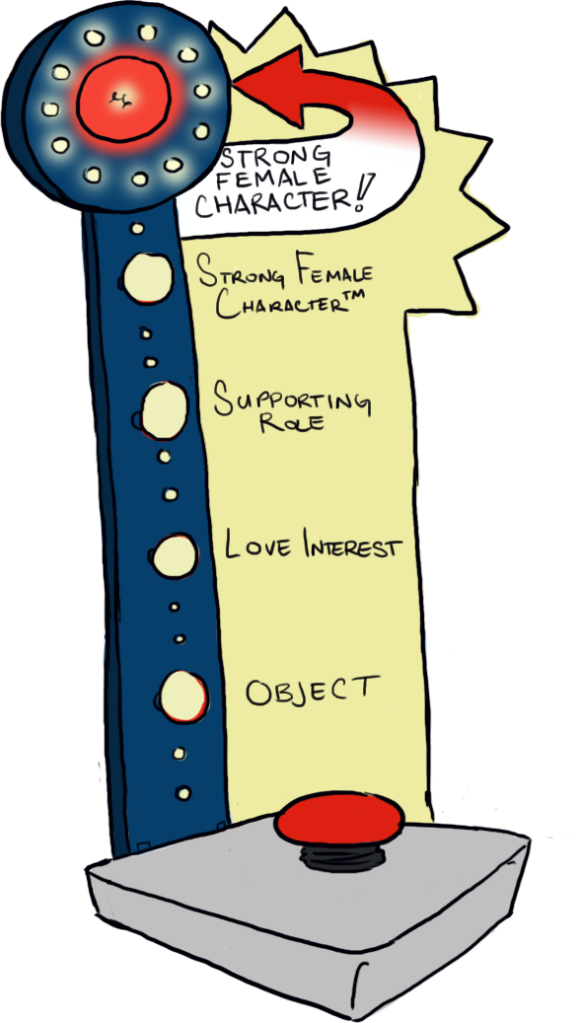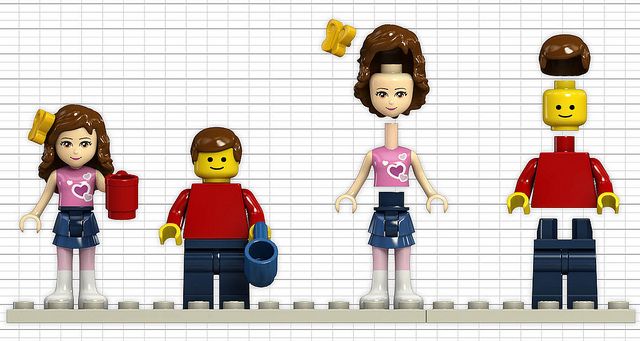I’ve
had this post open for two days now, staring at a flashing cursor on a
blank page. This seems strange, because when I first saw the request for
an analysis of Diablo Cody and Jason Reitman’s Oscar-winning film, I
immediately wanted to get cracking. And then I re-watched the film.
It’s
not that this film is poorly made or unenjoyable; quite the contrary.
The problem is one of interpretation, and that process, as applied to
the story of a pregnant teenage girl, has only become thornier with the
recent legislative attacks on women’s reproductive agency. Both sides of
the debate could easily claim victories in Juno’s
success. The pro-life contingent can point to the fact that Juno
decides to carry her pregnancy to term, explicitly turning down the more
convenient solution of abortion, while the pro-choice side can refer to
the numerous indications throughout the film that everything about this
pregnancy, from having unprotected sex to choosing to give her child
away to an adoptive family, is solely Juno’s choice. Those seeking an
apolitical reading might consider it the story of one young woman’s
individual experience with pregnancy. Essentially, what we’re facing is
the need to discuss both Juno the character and Juno the film.
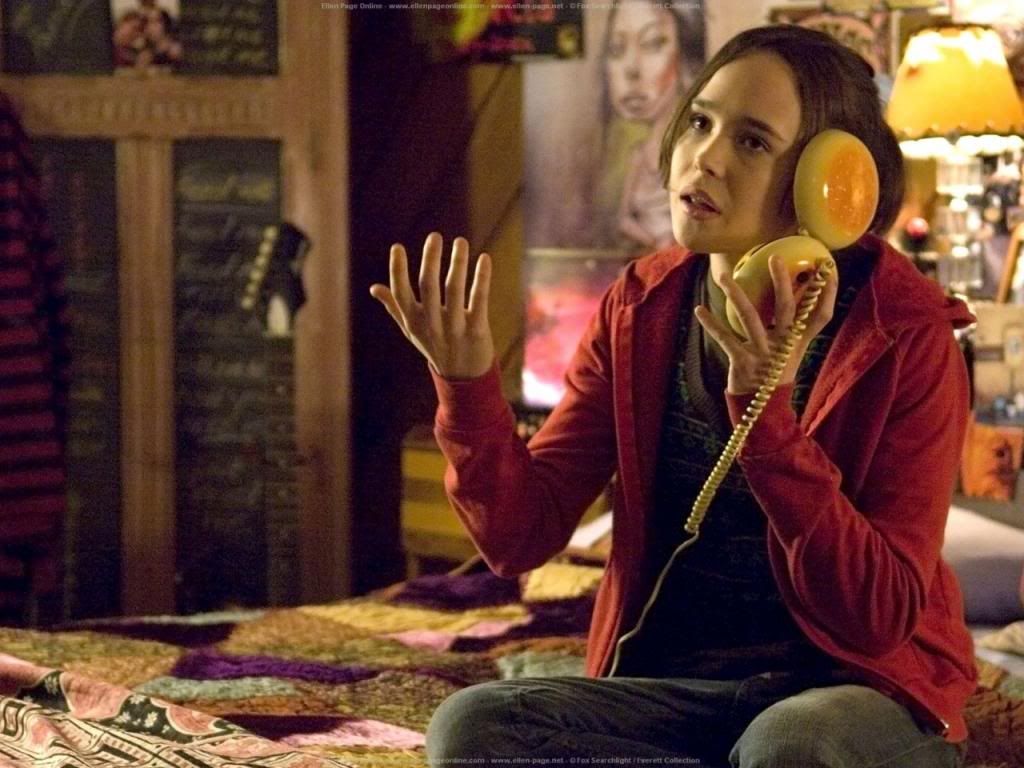
We
begin with the former. When we first meet Juno MacGuff, she is guzzling
Sunny D and trading verbal barbs with a particularly articulate
convenience store clerk. Juno is something of a word wizard, and much of
her characterization comes through her dialogical stylings; she is
intelligent, witty, and amply endowed with a quirky, sometimes poetic
sensibility. This speaking style strikes some who watch the film as
overtly false; a number of people in one of my screenwriting classes
blamed their inability to connect to Juno as a character on her
seemingly artificial speech. While I concede that it can be frustrating,
I would argue that Juno’s verbal self-expression is supposed to be a
bit alienating. Take, for example, the conversation in which she tells
Paulie Bleeker that she’s pregnant with his child. She explains that
she’s planning to have an abortion: “I was thinking I’d just nip it in
the bud before it gets worse, because they were talking about in health
class how pregnancy, it can often lead to... an infant.” She sounds
detached, but we can see that she isn’t. If you look past the wall of
false bravado and carefully constructed carelessness, you see a
terrified girl trying to make the best of a bad situation.
We’ve
spoken at length about titles and what it means when women are excluded
from them. In this case, the fact that the title is the female
protagonist’s name speaks volumes about her importance. This is truly
Juno’s story, and that is made clear in several ways. The first is both
the most obvious and the most important: the world of the film revolves
around Juno. She is, as she observes at one point, a planet, and the
other characters are moons in orbit. This may not seem like a big deal,
but there is something to be said for a film in which the female lead
gets the screentime, the narrative focus, and the witty commentary. It
tells us that her story matters.
It
also tells us that we should pay attention to her as something more
than a teen pregnancy statistic. Juno is fiercely unique and, at first
glance, this comes across as something like the super special snowflake
aspect of the traditional Mary Sue. In an early scene, the camera
lingers on the eccentric decor of Juno’s room, as if to confirm that she
really is just as quirky as we think. A little later, she waxes
philosophical about the desire of teenage boys for girls like her:
“freaky girls: girls with horn-rimmed glasses and vegan footwear and
goth make-up, girls who, like, play the cello and read McSweeney’s
and want to be children’s librarians when they grow up.” She even goes
so far as to contrast herself with the “perfect cheerleader” type.
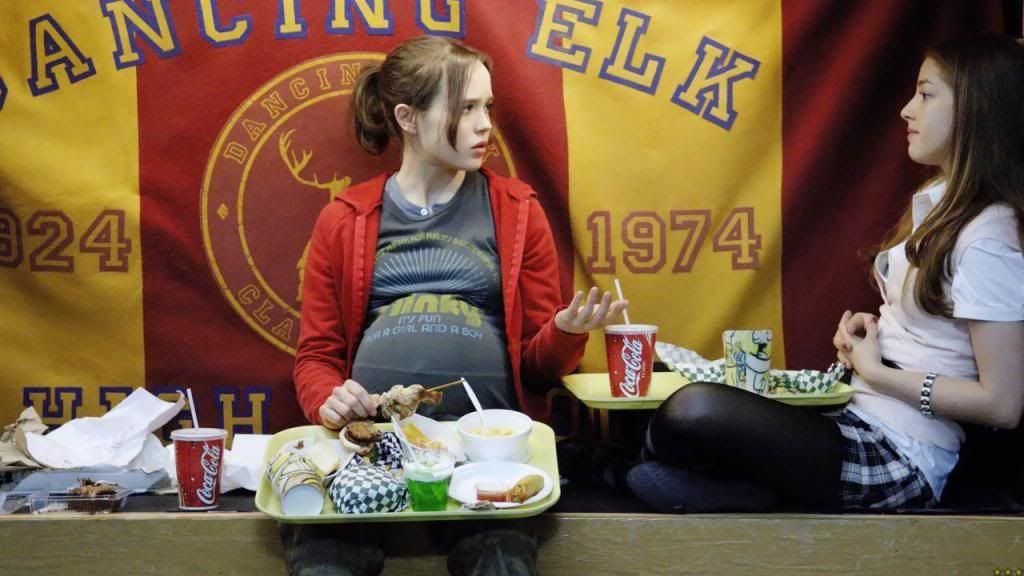
At
the same time, Juno seems to be a subversion of this very trope. She
genuinely loves and appreciates the eclectic, speaking intelligently
about classic rock and taking a keen interest in both truly terrible
zombie films and a manga about a pregnant superhero. She doesn’t scorn
the popular cheerleader types; in fact, her best friend, Leah, is one of
their number, and she clearly has a great relationship with her.
Finally, during her description of freaky girls, we see a girl on a
black background, arranged like a paper doll. The transformation of this
doll-girl into a “freaky girl” occurs as though some unseen person were
dressing her in an assortment of tabbed outfits. It suggests that Juno
recognizes the performative nature of the public personas that we
project in high school, as well as their inherent superficiality.
Perhaps this is why she seems so set on not caring what other people
think.
What
I find fascinating about Juno is the way in which she is allowed to be
flawed. She’s the kind of character who recounts tales of a girl making
drug-addled claims of krakenhood, and it turns out that she was the
aspiring sea monster in question. When she tells her parents about her
pregnancy, they legitimately consider expulsion, vehicular assault, and
legal trouble more likely topics for a Juno-focused family meeting.
Despite her obvious intelligence, she doesn’t put any effort into her
schoolwork, copying from Bleeker and wryly observing that her
contribution to their science partnership is “charisma.” She has no
sense of proper etiquette, and she doesn’t respect the boundaries that
separate her life from the lives of the couple to whom she is planning
to give her child. The catalyst of the film is her decision to have
unprotected sex and, while several characters point out just how foolish
this decision was, they still make a point of helping her with the
consequences.
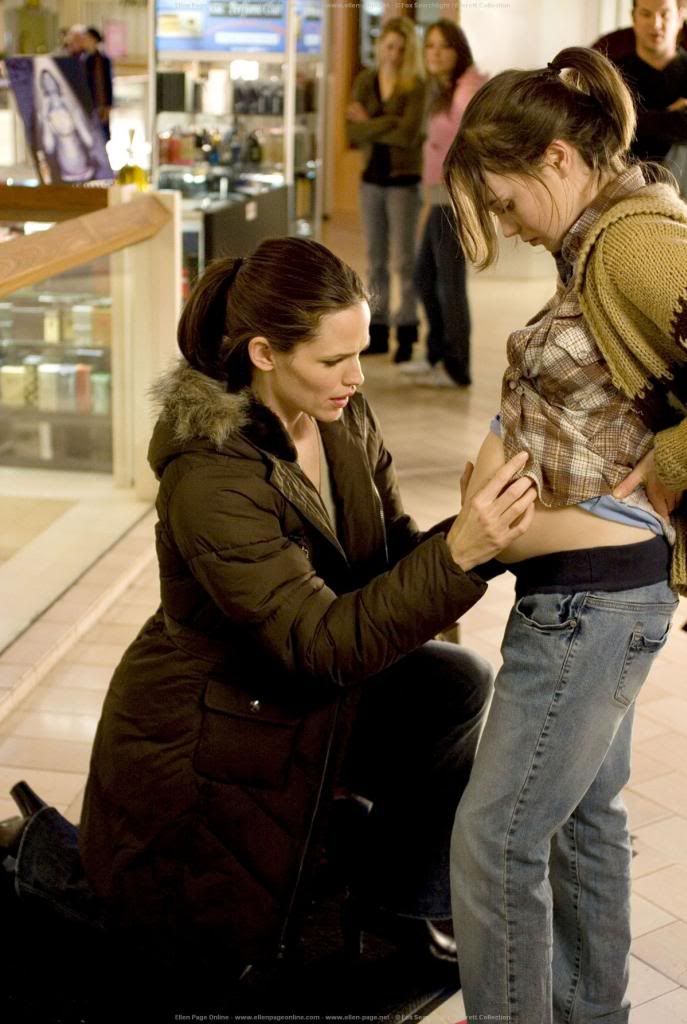
Juno
herself finds something positive in a difficult situation. Having been
abandoned by her own mother, who left to start a new family and whose
only acknowledgement of her first-born is the gift of a cactus every
Valentine’s Day, Juno seeks a secure, loving home for her baby. When
Mark tells her that he is planning to leave Vanessa, she reveals her
hopes for her child: “I want things to be perfect. I don’t want them to
be shitty and broken like everyone else’s family.” Part of her desire
for a perfect life for the baby seems to come from her need to live
through him vicariously. She gets to talk rock music and zombies with
Mark for a few months, but her kid would get that for a lifetime. Even
her decision to give the baby to Vanessa could be seen as a way to give
her child the mother she didn’t have and couldn’t be. Despite her
apparent cynicism, Juno is idealistic.
Her
idealism extends into the realm of romance. Over the course of the
film, she comes to realize that she is in love with Bleeker, but she is
also confronted with the harsh reality that love rarely conquers all.
When she asks her father to reassure her, he offers the following
advice: “Look, in my opinion, the best thing you can do is find a person
who loves you for exactly what you are. Good mood, bad mood, ugly,
pretty, handsome, what have you: the right person’s still going to think
the sun shines out your ass. That’s the kind of person that’s worth
staying with.” It’s a solid message, and it leads to a happy ending.
It’s this happy ending that brings us back to Juno
the film and the question of its political message. On the pro-choice
side, we have the undeniable fact of Juno’s agency. She chooses to have
sex; she chooses to get an abortion, then chooses not to; she chooses to
find an adoptive family for her baby, and she chooses to give him to
Vanessa even after the fantasy life she imagined for him falls apart.
When Juno tells Paulie that she’s pregnant and tells him she’s planning
to abort, he is supportive of her choice and tells her to “do whatever
you think you should do.” He understands that, ultimately, it is her
decision. Further supporting a reading of the film as pro-choice is the
sheer number of casual references to abortion. It’s not stigmatized in
the least, and both Juno’s stepmother and her best friend suggest it as
an option. Leah even mentions that she called a clinic for one of their
classmates the year before, treating it as a normal medical procedure.
Then, of course, there’s the ridicule heaped upon the pro-life movement
in the form of Su-Chin and the infamous “All babies want to get borned”
protest outside the clinic.
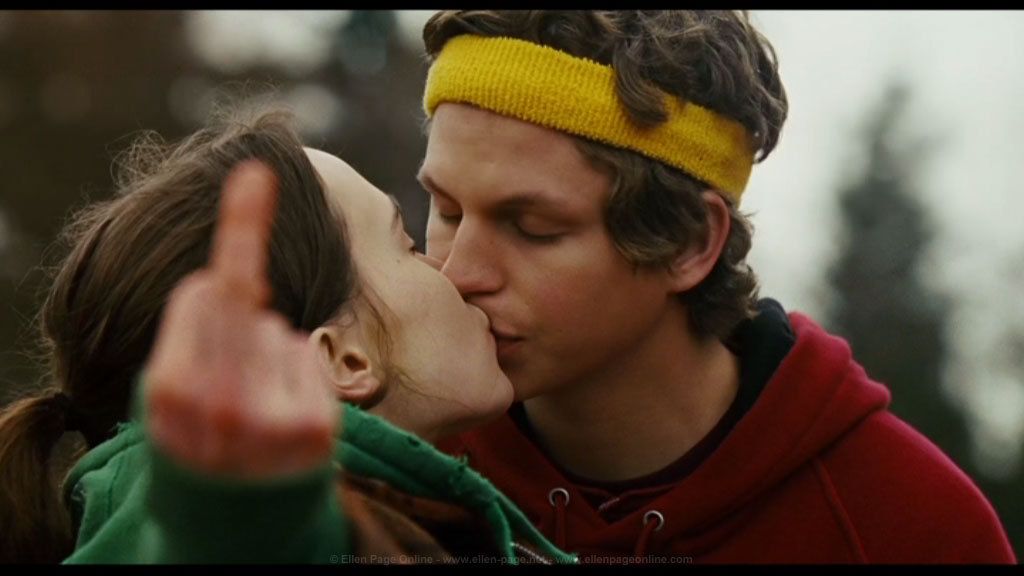
On
the other hand, the clinic itself is hardly a rousing endorsement for
the cause. The receptionist is blasé about bomb threats, dismissing the
very real incidents of anti-abortion violence. She urges Juno to take a
flavoured condom because it “makes [her boyfriend’s] junk smell like
pie.” Instead of merely reminding Juno to fill out her information
thoroughly, she tells her to give all the “hairy details” about “every
score and every sore.” In her own way, she’s as ridiculous as Su-Chin.
The more obvious argument in favour of the pro-life side is the happy
ending that results from Juno’s decision to give birth. At the end of
the film, Juno and Bleeker are blissfully happy together, Vanessa has
exactly what she wanted, and Juno’s stepmother has the dogs she adores
(because Juno magically overcame her allergy, I guess). Everyone’s lives
have improved, and Juno’s plan to consider the pregnancy a nine-month
blip in her life has apparently been successful. I don’t want to claim
that this could never happen, but it does seem awfully convenient.
Honestly, I’m inclined to believe that Juno
is intended to be an apolitical film, and I understand that a film that
takes its structure from the length of a full-term pregnancy would be
pretty short if said pregnancy was terminated in the first couple of
months. However, in a media climate where just about every woman chooses
to carry the fetus to term (see recent, ridiculous examples in American Horror Story and The Walking Dead),
I don’t think it’s too much to ask for one show to do more than pay lip
service to the idea of abortion. You can try to normalize it through
repeated references to its availability, but if no character ever takes
advantage of it, even in cases when it’s the only sensible option, it
will remain stigmatized. While I’m happy that the Junos exist, I could do with a few more Maudes.
Verdict: Actual strong female character
